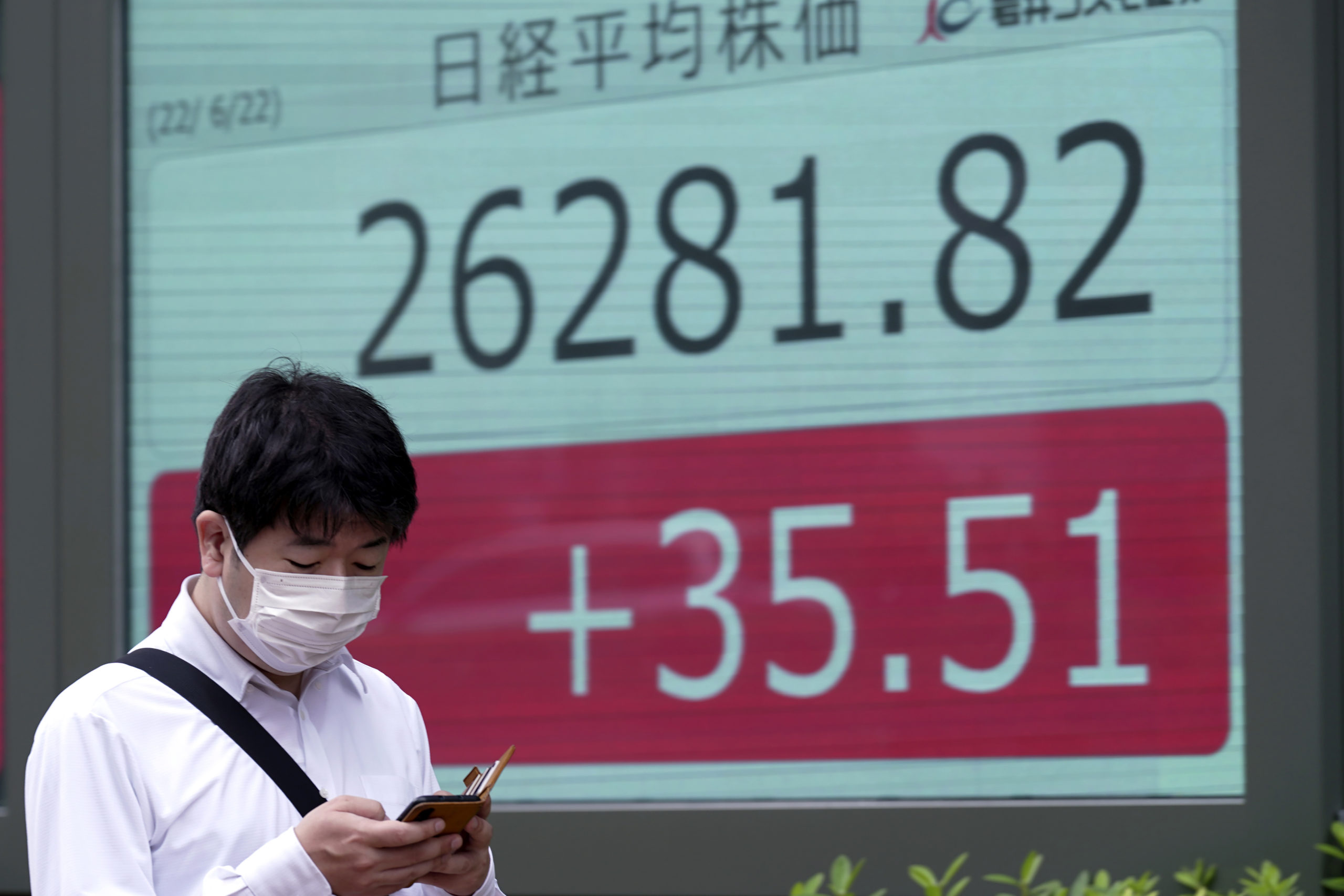BEIJING (AP) — Asian stock markets were mixed Thursday after Wall Street edged lower amid fears higher interest rates will chill global economic growth.
Shanghai and Hong Kong advanced, while Tokyo and Seoul declined. Oil prices fell more than $2 per barrel to near $100.
Federal Reserve Chair Jerome Powell, talking to members of Congress, said Wednesday that while the U.S. central bank doesn’t need to “provoke a recession,” one is a possibility due to rate hikes to cool inflation that is running at four-decade highs.
Wall Street’s benchmark S&P 500 index lost 0.1% after swinging between a gain of 1% and a loss of 1.3% during the day.
“The market now accepts recession is a risk, having been in total denial,” Michael Every of Rabobank said in a report.
The Shanghai Composite Index rose 0.6% to 3,285.99 while the Nikkei 225 in Tokyo sank 0.3% to 26,059.39. The Hang Seng in Hong Kong gained 1% to 21,209.09.
The Kospi in Seoul retreated 1.5% to 2,308.20 while Sydney’s S&P-ASX 200 rose 0.2% to 6,523.50. New Zealand, Bangkok and Singapore advanced while Jakarta fell.
Central banks in the United Sates and Europe are trying to stop inflation that is running at four-decade highs.
Investors worry that will derail global growth. Powell, speaking before the Senate Banking Committee, acknowledged the risks but said it is “absolutely essential” that the Fed restore stable prices.
“We now anticipate the most aggressive and synchronized tightening cycle” by global central banks since the 1980s, said Jennifer McKeown of Capital Economics in a report. “The key question now is not whether central banks will slam on the brakes, but what might stop them?”
The S&P 500 declined to 3,759.89. Stocks in the index were evenly split between gainers and decliners.
The Dow Jones Industrial Average gave up 0.2% to 30,483.13. The Nasdaq composite slipped 0.2% to 11,053.08.
The S&P 500 is in a bear market, or down more than 20% from its Jan. 3 peak. It has fallen in 10 of the past 11 weeks.
Last week, the Fed raised its benchmark rate by three quarters of a percentage point, three times its usual margin and the biggest increase in nearly three decades.
Fed policymakers say they anticipate more rate hikes this year and next and at a quicker tempo than previously forecast. They say the central bank’s key rate should reach 3.8% by the end of 2023, its highest level in 15 years.
Surging prices have soured consumer sentiment in the United States, the world’s biggest market. Retail spending is sagging.
Inflation fears have been aggravated by a spike in prices of oil, wheat and other commodities due to Russia’s attack on Ukraine.
Oil prices fell sharply for a second Wednesday, suggesting traders anticipate weaker demand as economic activity cools.
Benchmark U.S. crude tumbled $2.68 to $103.51 per barrel in electronic trading on the New York Mercantile Exchange. The contract declined $3.33 on Wednesday to $106.19. Brent crude, the price basis for international trading, retreated $2.43 to $106.22 per barrel in London. It sank $3.12 the previous session to $108.65.
The dollar fell to 135.34 yen from Wednesday’s 136.28 yen. The euro rose to $1.0570 from $1.0566.

